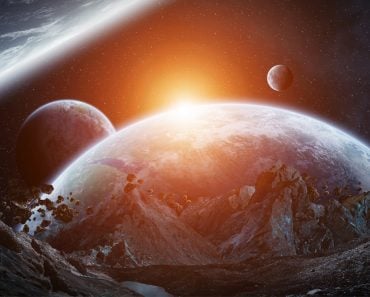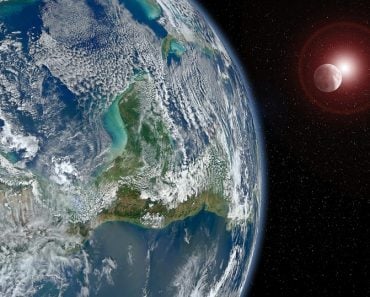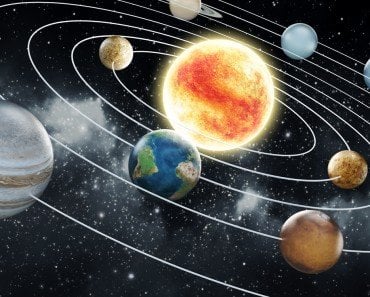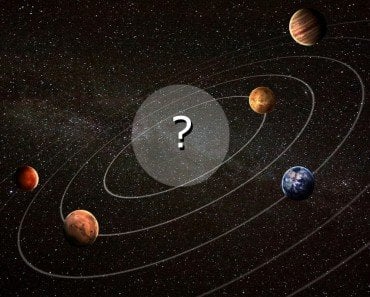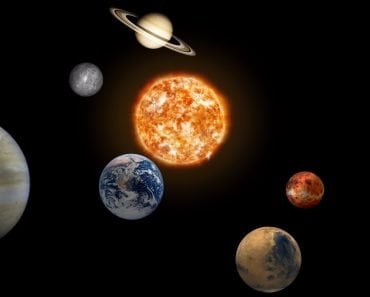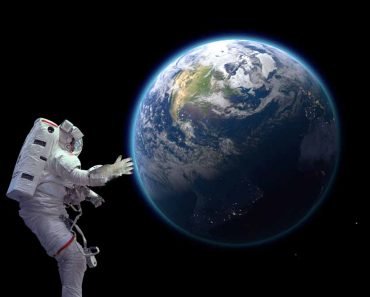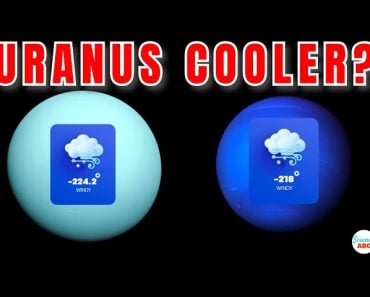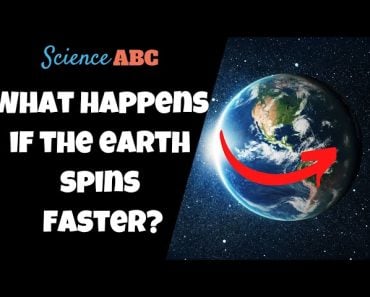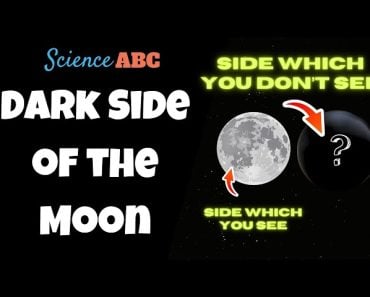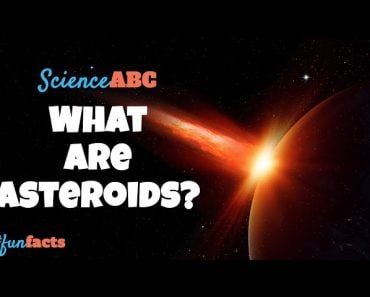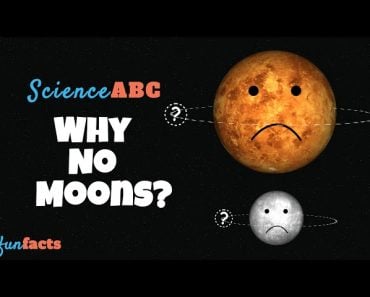Table of Contents (click to expand)
Simply put, if Saturn were to move past Earth, it would be catastrophic for our planet. The gravitational pull from Saturn would be so strong that it would tear Earth apart.
Our solar system is quite a friendly neighborhood, so to speak. Planets revolve around a giant ball of fire alongside each other in complete harmony, smaller natural satellites revolve around their respective ‘guardian’ planets, and no one disturbs the equilibrium. Everyone is content with their own lives in their own segregated orbits.
However, what if one of the eight planets decide to rebel and break this carefully maintained harmony? What if a planet, say Saturn, decides to pay Earth a visit?
Recommended Video for you:
Saturn, The Planet
Before we look at how Earth would react to such an uncalled-for visit by its galactic neighbor, let’s peek into the profile of the ringed gas giant.
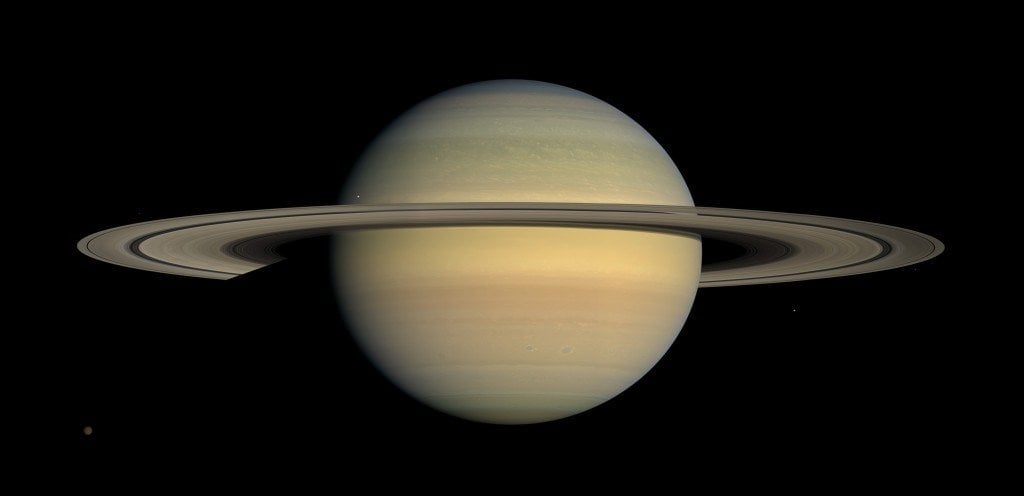
When we think about Saturn, the first thing that comes to mind is its ring system, i.e. the spectacular rings that run around its diameter. Apart from that, Saturn is huge… really huge. In terms of sheer size, it stands second only to Jupiter. Its average radius is almost nine times that of Earth’s, but its density is only one-eighth of our home planet.
Saturn’s Visit To Earth
If Saturn were to come close to Earth, the consequences would be… well, unsavory. Let’s look at the consequences involved…
For The Moon
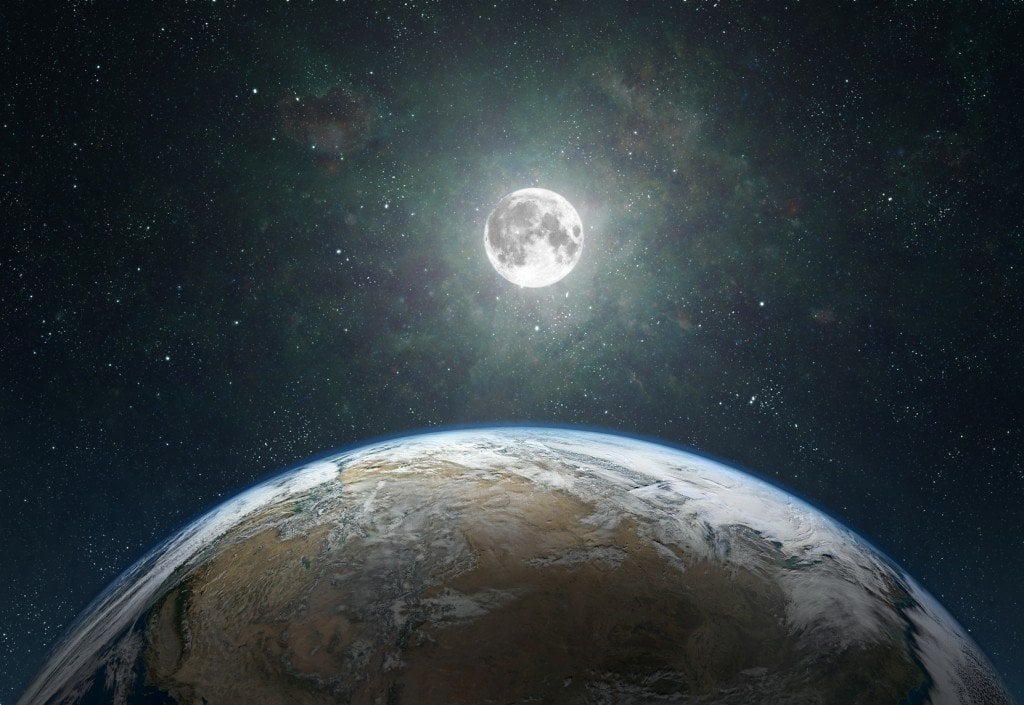
First off, it would be bad news for our beloved moon. In a situation where three celestial bodies – namely Earth, the Moon and Saturn – are involved, the one with the lowest mass would bear the maximum brunt of the encounter. In this particular case, the Moon would be chucked right out of its orbit around Earth. What would follow for the moon can’t be claimed with certainty, but in most cases, it would go into a highly elliptical orbit around the Sun. This, again, is not desirable, as there would be chances of the moon crossing through Earth’s orbit, and in the worst scenario, it would run into Earth.
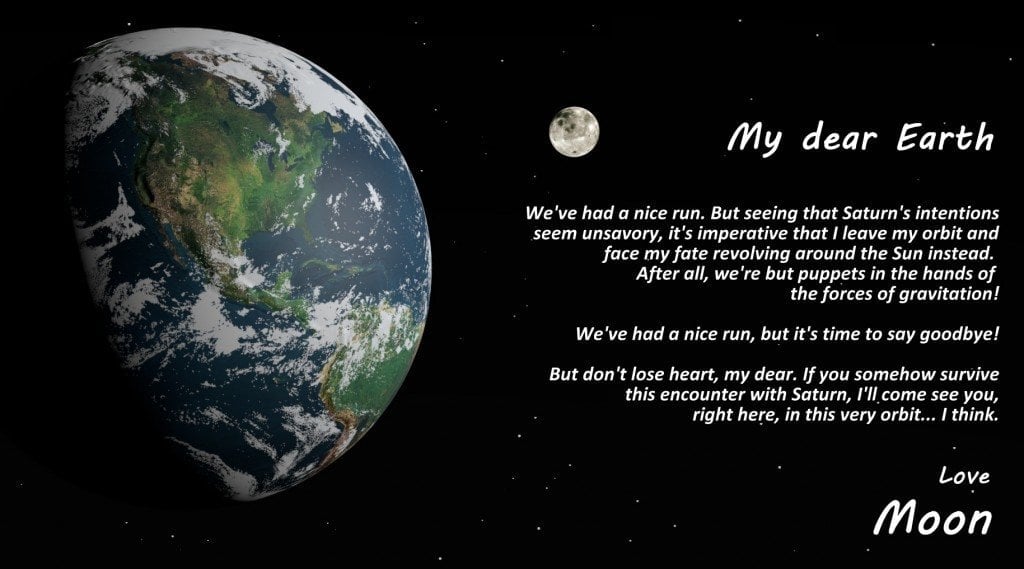
For Saturn
A significant portion of the iconic rings around Saturn would become history if it were to ever come close to our planet. You see, Saturn’s rings are mostly made up of ice particles, along with a smaller amount of rocky debris and dust. Earth’s gravitational pull would be more than enough to disturb and subsequently obliterate the rings by pulling the constituent particles ‘out’ of the rings. Now, where do you think these ‘pulled-out’ particles would head after being yanked out from their guardian rings…
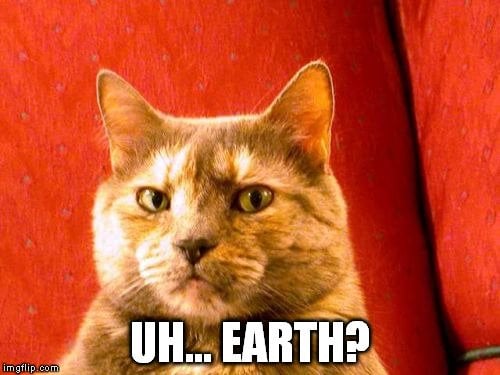
Bingo!
Still, many of the particles of the ring would continue to orbit Saturn, giving it the appearance of a ‘damaged ring’, as Earth’s gravitational pull isn’t strong enough to completely strip it of those beloved rings.
For Earth
Now for the most important part, what would happen to Earth?
In one word: destruction!
There’s no way that Earth would survive such an encounter with Saturn. A major part of Earth is covered by oceans and tides are caused by the gravitational pull from another closely located and considerably large celestial body. The power and the height that tides rise and fall depends on the size of the celestial body causing them. Right now, it’s primarily the gravitational pull from moon that causes tides.
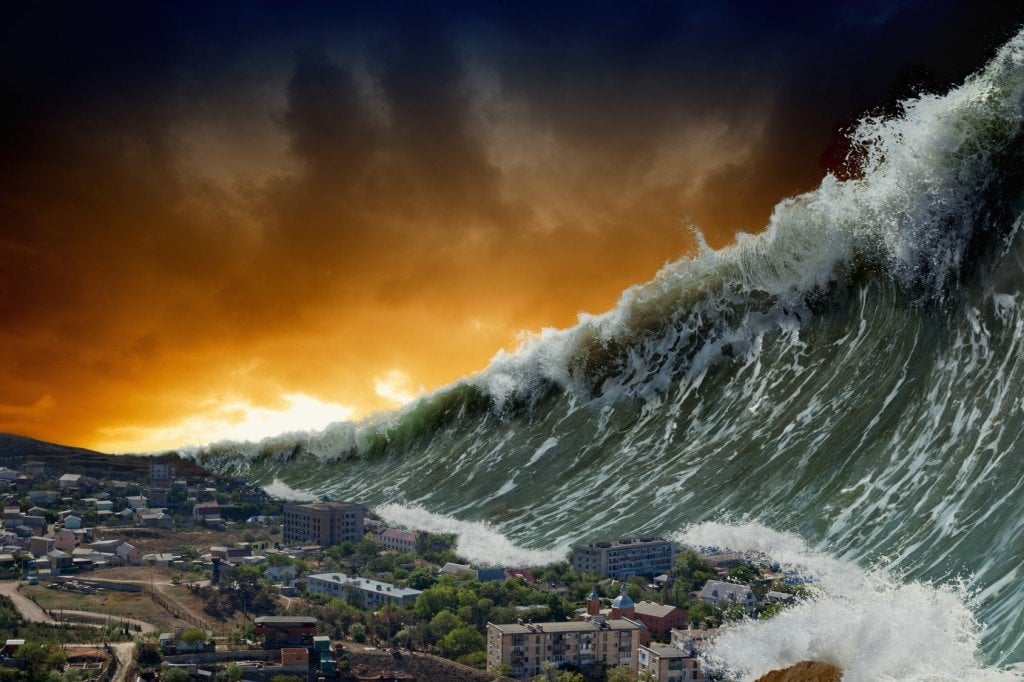
However, if Saturn were to come closer to Earth (after chucking the Moon out of orbit), imagine the scale of ocean tides then. There would be huge… no, apocalyptic tidal waves that would rage all over the planet and destroy everything in their path. After reaching a certain distance from Earth, the tidal force on Earth would be so strong that it would tear our planet apart – literally!
All of this would happen when Saturn was still more than a million kilometers away from Earth! Check out the video below for a more visual description of this hypothetical encounter.
The good thing, though, is that all of this is purely hypothetical. We are good neighbors and will continue to be so in the future. That being said, don’t be too worried about the beautiful ringed gas giant because, as always, it minds its own business.


